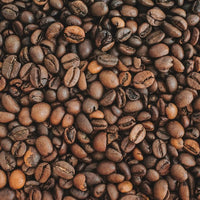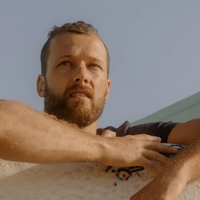It’s no surprise that coffee is one of the most widely consumed beverages around the world. Many folks will turn to coffee for a quick burst of energy, while in other countries, it can even be an after-dinner beverage to help with digestion to get a better night’s sleep.
Around the world, easily over a billion kilograms of coffee are produced— and in the United States, the average person drinks more than three cups of coffee per day. Around 64% of coffee drinkers reported drinking coffee for the caffeinated energy boost, which is exactly what we’ll be addressing today.
The Coffee Roller Coaster
Coffee drinkers of the world are familiar with the effects of coffee. It’s a little bit of a gamble. Each cup and you get to spin the wheel, will it leave you feeling energized and focused? How about jittery and anxious? That’s always the balance people are trying to strike between staying focused without going overboard. In the morning, coffee usually takes the edge off that morning haziness, sharpening the mind without getting too much in the way.
By a second cup later that morning or in the early afternoon, you start to teeter dangerously close to the edge, and by lunch, you’ll be jittery, with a mind racing a million miles a minute. By the end of the day, when you’re feeling exhausted from speeding through the morning, you’re downing a cup and hardly feeling anything. In fact, you’re feeling more exhausted than when you started your third cup of coffee— sound familiar? This problem can be much more common than you think, and we’ll walk you through the simple science that explains why.
How Coffee Gets You Going
To best explain why coffee can send you into a slump at the end of the day, it’s a good idea to start with how coffee gives you energy in the first place! There are actually a few different effects that caffeine has on the body, which all involve neurotransmitters. The first key interaction that we will be focusing on involves dopamine - a hormone central to the feeling of pleasure.
While sipping a warm coffee first thing in the morning can be blissful, the pleasure center of our brain is also crucial to planning and thinking. Having good foresight leads us to seek out pleasurable experiences. Secondly, serotonin, another hormone responsible for happiness, is also implicated in the effects of caffeine. Serotonin plays an incredibly important role in not only having a balanced positive mood but also in controlling the body’s sleep-wake cycles! Lastly, acetylcholine is part of the pathway that makes our movements possible. However, it can also have excitatory or inhibitory effects depending on where and what it’s acting upon.
So what does this mean when caffeine enters the body? Caffeine increases the level of all three of these neurotransmitters. Most notably, dopamine has interesting effects on the muscles. Adenosine is an important chemical in the forebrain, which is necessary for sensing fatigue.
This is largely the way that caffeine causes alertness because the caffeine-related increase in dopamine causes dopamine to block out the adenosine receptors. Great for sleepy folks around the world, this causes a boost of alertness! While your body is still producing the tired hormones, your body is just being blocked from feeling them— sort of like wearing a waterproof coat on a rainy day. The other neurotransmitters function in a variety of side pathways linked to concentration.
In addition to these key interactions involving neurotransmitters, caffeine is able to support muscle contraction, which can lead to reduced exertion— making coffee or other caffeine sources an excellent idea before workouts. Calcium is a necessary mineral for muscle contractions to occur in the body, and caffeine consumption also helps encourage the muscle fibers to bring in more calcium. These effects also lead to feeling more energized and prepared to attack the day!
Where It All Goes Wrong
Unfortunately, on the negative side, caffeine also causes a release of the class of chemicals that includes adrenaline. Anyone familiar with going on a rollercoaster knows that while adrenaline can give you a great rush of energy, leaving your heart pounding at the moment, the post-adrenaline crash can be pretty significant and leave your body exhausted and depleted of resources. This is related to one of the ways that coffee makes you tired! Additionally, by having more energy, you are burning through metabolic resources much faster and burning off fat— while it seems like a great thing to do so if you go too long without eating after a cup of coffee, it’s easy to enter into the hungry or hangry phase.
Some of the other negative effects of caffeine include some increases in risks of heart attacks or blood pressure issues, insomnia, indigestion, and more. Additionally, long-term consumption of caffeine can lead to withdrawal headaches and even increase the likelihood that you’ll need to head to the bathroom— the chemicals in coffee, in addition to caffeine, are also a laxative and coffee natural diuretic as well. Be sure to hydrate in addition to having a snack with your coffee next time you’re enjoying a warm cup!
Why Coffee Makes You Tired
For those patiently reading, let’s get to the point! Why does coffee finally hit its plateau point and cause so much fatigue? Unlike the analogy of wearing a raincoat on a wet day, the raindrops (excess adenosine building up while dopamine blocks the receptors) don’t just slide off onto the ground and roll away.
Instead, they continue building up in your system, as they are not supposed to be degraded as their levels increase. Finally, at a certain point, as the caffeine wears off, your dopamine is not nearly as high, and the adenosine is able to bind to its receptors. Coming from being energized and not feeling the gradual effects as your fatigue builds, the sudden burst of fatigue hits most coffee drinkers like a brick wall around the mid-afternoon.
Additionally, the other ways that coffee wakes you up— increased metabolism, ease of muscle contraction, and boosting adrenaline levels also eventually reach their end. In a depleted, exhausted state, your body suddenly finds itself in a slump, worse than when you started the morning! Perfect timing for another cup of coffee, right?
Contrary to popular opinion, that next cup of coffee won’t be able to reverse the effects, as it does to a sleepy coffee fiend first thing in the morning. Instead, coffee at that point can’t cause the adenosine that is already bound to its receptors in the brain to unbind. This means that while you can keep drinking coffee, you’ll just be boosting your adrenaline and other levels while still feeling exhausted, causing shakiness and anxiety to increase without boosting any alertness or mental acuity.
How To Get Going Without Coffee
Never fear, there are a variety of natural ways you can still help pick up and feel a little more awake to get you through the day while still avoiding caffeine and the negative effects that might come alongside it. For example, you can get up and move— just 10 minutes of physical activity is enough to boost energy for a few hours!
By getting oxygen to our brains and organs, we are better able to perform than by just sitting around. This means that even just taking a few deep breaths can work in a pinch if you don’t have the chance to get up and move around. If you can’t get up and still want to move, try some stretches at your desk while sitting. Incorporating these throughout the day can help as much, if not more than a sugary snack, while also avoiding the subsequent crash!
If possible, a quick 5-25 minute power nap is enough to get a reset as well. While frowned upon in some workplaces, sleeping on the job can be an exceptionally helpful way to boost productivity levels by allowing employees to refresh themselves and come back to the task more alert!
When napping isn’t an option, try switching up tasks or starting a conversation with someone else in the office— these are great ways to trick the brain into feeling more alert and avoiding the fatigue that comes along with doing the same task for an extended period of time.
If you’re feeling snackish, don’t reach for sugar when tired! It’s a good way to get a quick burst of energy but will lead to additional fatigue in the long run. Instead, try something filled with protein and healthy fats to help support your body in feeling energized without the crash. No matter what you pick— opt for water over coffee at the end of a long day, your body will thank you!
At MUD\WTR, we created mud because we were disappointed with the effects coffee was having on the body. We knew there had to be a better way to unlock the alert and energized feeling we were after. With all-natural ingredients, mud is an amazing way to maximize your health, stamina, and focus as you kick coffee to the curb.
Sources:
Link 1 - http://www.ico.org/
Link 2 - https://disturbmenot.co/coffee-statistics/
Link 3 - https://www.webmd.com/mental-health/what-is-dopamine
Link 4 - http://tuftsjournal.tufts.edu/2009/03_1/professor/01/




